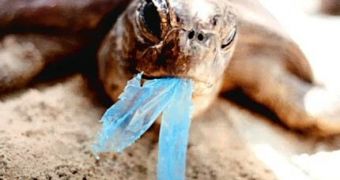The Environmental Protection Agency in the United States is now investigating whether or not a tiny island that sits in the Pacific Ocean is polluted enough to quality as a Superfund cleanup site.
The patch of land in question is Tern Island. It is part and parcel of the Northwestern Hawaiian Islands, and it used to serve as a military landing site during World War II.
Greenheads working with the Center for Biological Diversity say that both this island and the other ones near it are pretty much drowning in marine debris.
Specifically, they are home to tons of plastic bottles, fishing gear, even old home appliances. Loads of bits and pieces of plastic have also set up camp in the area, the environmentalists argue.
Hence, it is mandatory that the island be declared a Superfund cleanup site. Should the 25-acre patch of land be labeled as a hazardous waste site, authorities and high officials would be left with no choice except speed up efforts to clean it up.
Civil Beat tells us that, when the Center for Biological Diversity first filed its petition with the US Environmental Protection Agency, the group asked that not just Tern Island, but also all the other patches of land that made up the Northwestern Hawaiian Islands be listed as Superfund cleanup sites.
The Agency denied this request, and chose to focus on Tern Island alone. By the looks of it, what sparked their interest in this patch of land was the fact that monk seals inhabiting it were found to have elevated levels of PCBs in their bodies.
PCBs, otherwise known as Polychlorinated biphenyls, are chemical compounds known to be highly toxic. What's more, some researchers say that long-term exposure to them can cause cancer.
Apparently, the Agency suspects that the PCBs documented in the monk seals' bodies come from the plastic debris and electrical equipment lying around in the area.
Together with the US Fish and Wildlife Service, it will investigate the issue and determine whether or not the debris present on Tern Island is releasing harmful compounds in local ecosystems. A preliminary conclusion is expected to be reached by next year's June.

 14 DAY TRIAL //
14 DAY TRIAL //